‘The West can learn lessons about Putin from Syria’
Your digest of analysis from the British and international press
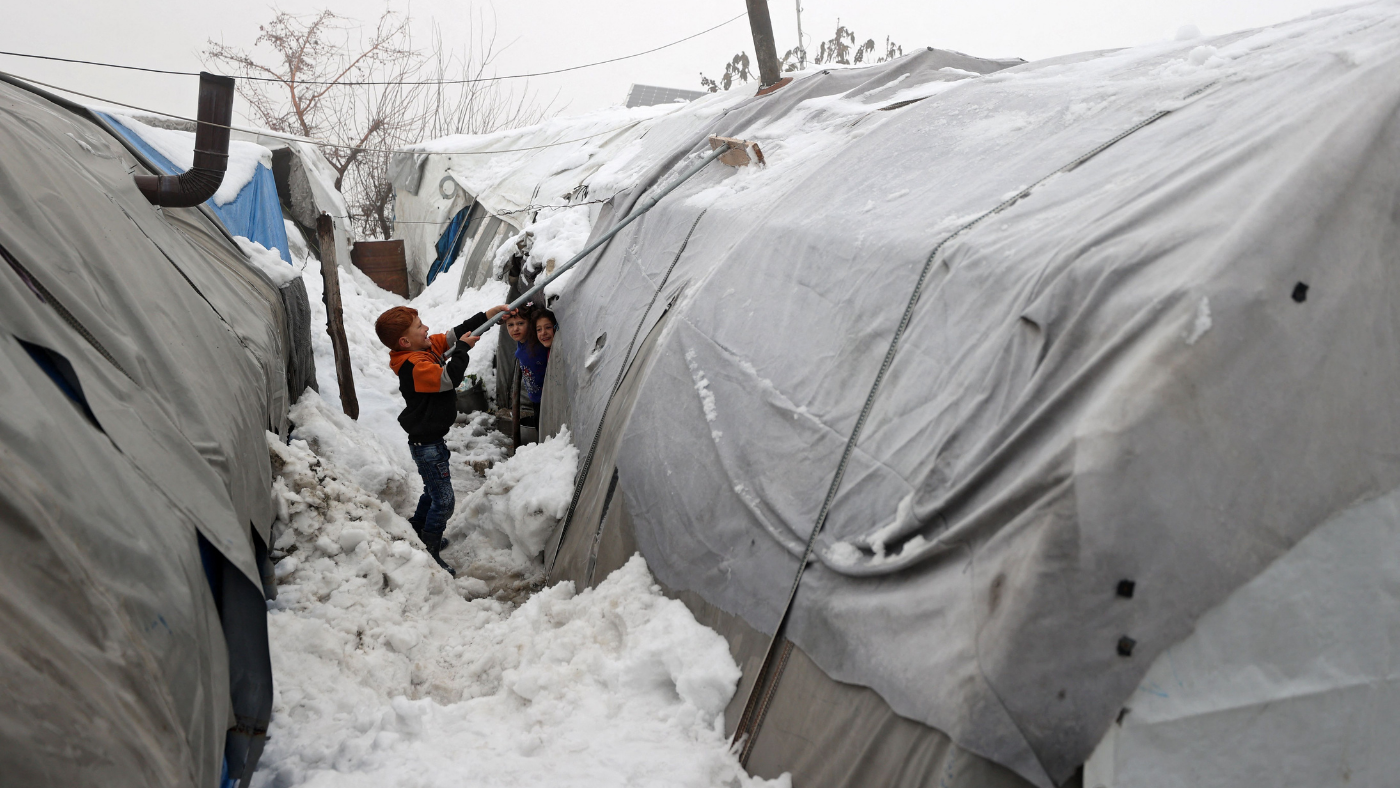
- 1. The West stood back and watched in Syria – it must not do the same in Ukraine
- 2. No, Vladimir Putin isn’t triumphing over the West
- 3. Guess who’s back on the line
- 4. Our frontline workers kept us safe. It’s time we rewarded them
- 5. The loss of big names like Emily Maitlis and Jon Sopel shows journalists are no longer defined by the BBC
A free daily email with the biggest news stories of the day – and the best features from TheWeek.com
You are now subscribed
Your newsletter sign-up was successful
1. The West stood back and watched in Syria – it must not do the same in Ukraine
Hamish de Bretton-Gordon at The Guardian
on learning lessons
The Syria crisis “holds key lessons for the West about Putin”, says Hamish de Bretton-Gordon at The Guardian, “yet it has gone virtually unnoticed by the rest of the world”. The chemical weapon expert says that today, Syria “is a Russian state in all but name”, and Bashar al-Assad is “a puppet dictator with strings very clearly tugged from Moscow”. The country “now represents a major Russian and Iranian presence on the edge of Europe; and if Ukraine also falls, the balance of power will very much shift eastwards”. De Bretton-Gordon says that “with too many European countries reliant on Russian gas, the current global instability began in Damascus”. Syria “shows what happens when you turn a blind eye and are too heavily influenced by peaceniks”. Syrians “have shown resilience and innovation beyond compare”, but leaders “will do well” to “be strong and resilient to protect Ukraine”. This writer does not think “that a few sanctions on a few banks and billionaires is going to perturb Putin”.
The Week
Escape your echo chamber. Get the facts behind the news, plus analysis from multiple perspectives.

Sign up for The Week's Free Newsletters
From our morning news briefing to a weekly Good News Newsletter, get the best of The Week delivered directly to your inbox.
From our morning news briefing to a weekly Good News Newsletter, get the best of The Week delivered directly to your inbox.
2. No, Vladimir Putin isn’t triumphing over the West
Michael Fallon at The Telegraph
on defence and deterrence
Vladimir Putin has “invaded another country again. He has Europe’s gas bills in his hands. Former US president Donald Trump thinks he’s a genius. A serious British commentator describes the Kremlin’s strategy as ‘brilliantly disguised’”, says Michael Fallon at The Telegraph. “But it’s a little too easy to conclude that the allies have been outplayed.” The former British defence secretary advises looking “more closely at the West’s response”. There have been “a series of impressive further commitments to the Nato alliance”, which “today is in fact stronger, not weaker”. Under Sir Stuart Peach’s leadership, the alliance has “modernised its military strategy and refocused on deterrence and defence”, says Fallon. “And let’s not forget what really worries Putin – that Nato might expand” – and that it is, he continues. Yes, “there is much more to be done” by the West, but “we should not make the mistake of underestimating our own strength”.
A free daily email with the biggest news stories of the day – and the best features from TheWeek.com
3. Guess who’s back on the line
Gail Collins at The New York Times
on newsletter notifications
It’s “hard to avoid thinking about Donald Trump when he’s calling Vladimir Putin’s current behaviour ‘genius’”, says Gail Collins. Writing at The New York Times, she concedes that “to be honest, ignoring him is almost always pretty difficult”. Collins has received “at least 230 emails” from Trump this month asking for money. It’s been a “tough time” for the former president. “Lost the election. Big disaster on Jan. 6. Reports of ripped-up paper in the White House toilet. Even Mike Pence has ditched him.” But “his political career is absolutely on track”, and his fundraising attempts have seen cash come “pouring in”. “Trump’s very, very cheerful email fund-raising appears to be so wildly successful” that “other Republicans are muttering that they’re being crowded out of the action”. It’s “hard to imagine they can elbow in”. Wait, says Collins: “here comes another email”.
4. Our frontline workers kept us safe. It’s time we rewarded them
Osman Faruqi at The Sydney Morning Herald
on striking services
“It’s hard to think of a cohort of workers who have done more, under extreme and unprecedented conditions, to keep us safe over the past two years than our frontline public sector workers,” says Osman Faruqi at The Sydney Morning Herald. During the pandemic, “we clapped and cheered for these workers, we thanked them, and politicians sang their praises”. But now, they “are under assault from the same governments that relied on them to prevent total disaster”. This week it’s been train workers on strike “over pay, safety conditions and proposed privatisations”, and before that it was nurses who were “forced to strike to squeeze out a better pay deal”, says Faruqi. “Public sector wage caps are poor policy at the best of times”, but following a pandemic, “they are brutal”. Australia’s “nurses, teachers, and other frontline workers have deserved better for years”, and now, “there’s no excuse.”
5. The loss of big names like Emily Maitlis and Jon Sopel shows journalists are no longer defined by the BBC
Sarah Sands at the i news site
on attracting talent
“What tempted the premier league” journalists Emily Maitlis and Jon Sopel to leave the BBC for careers at Global, was an offer “tailored to them, plus global reach, probably loads of money and less fuss about their terms and conditions”, says Sarah Sands at the i news site. When the former Today programme editor was at the BBC, Sands says “there was a stern distinction between the hair shirt of news compared to the agents-and-I-will-say-what-I-like-on-Twitter world of entertainment and sport”. Now, “the changing market and appetite for news-based content […] means that news executives are going to have to start asking themselves whether journalists are happy”. Up until recently, “journalists were defined by working for the BBC. Now those with big enough profiles can make their fortunes nicely outside it”. The “wrong conclusion” for the BBC to reach from this would be “a round of inflationary salary rises and promises” that would be “disastrous” for the broadcaster. The BBC “remains a benign and mighty institution” but “it must recognise that it is now part of a media eco system”.
-
 Political cartoons for February 19
Political cartoons for February 19Cartoons Thursday’s political cartoons include a suspicious package, a piece of the cake, and more
-
 The Gallivant: style and charm steps from Camber Sands
The Gallivant: style and charm steps from Camber SandsThe Week Recommends Nestled behind the dunes, this luxury hotel is a great place to hunker down and get cosy
-
 The President’s Cake: ‘sweet tragedy’ about a little girl on a baking mission in Iraq
The President’s Cake: ‘sweet tragedy’ about a little girl on a baking mission in IraqThe Week Recommends Charming debut from Hasan Hadi is filled with ‘vivid characters’
-
 Luton Airport bendy buses join Ukraine war effort
Luton Airport bendy buses join Ukraine war effortfeature And other stories from the stranger side of life
-
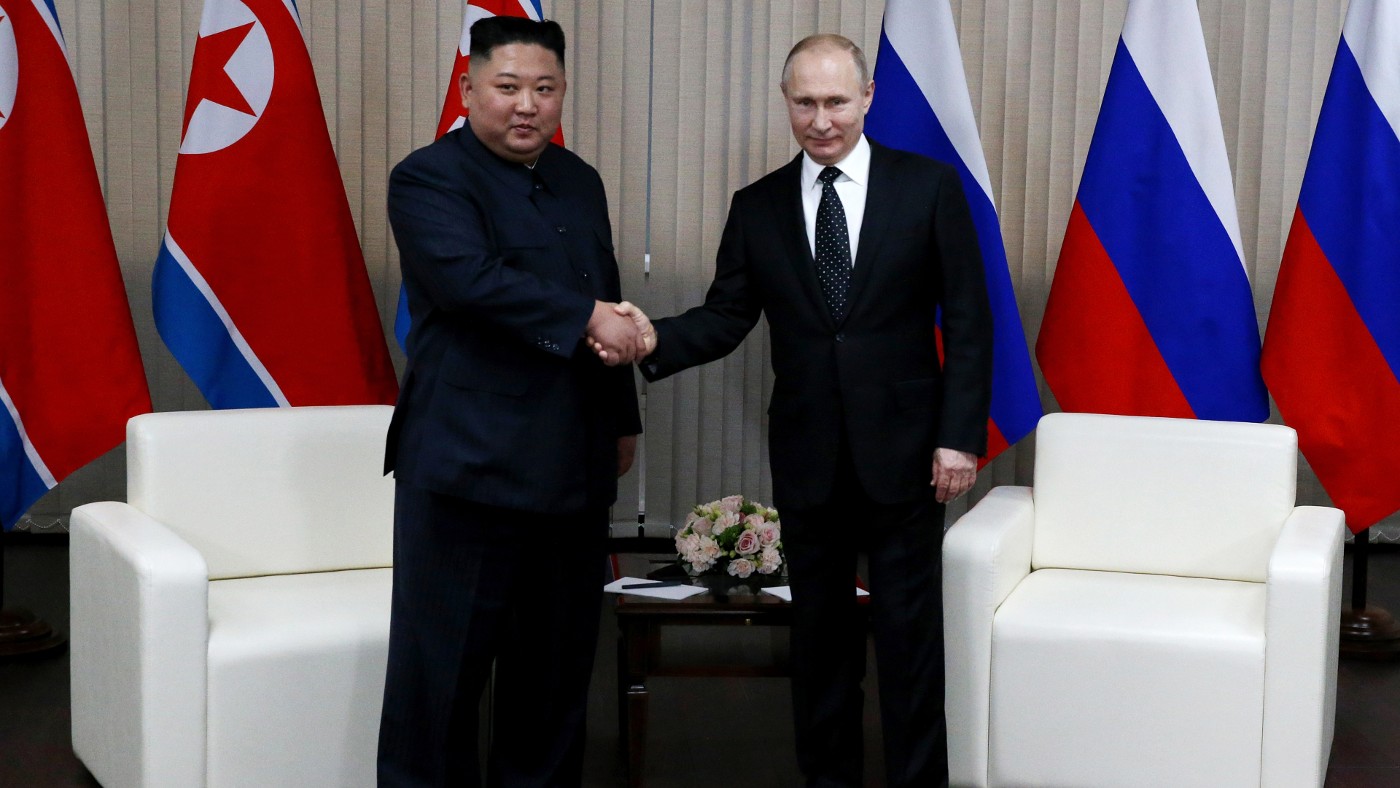 Would North Korean weapons tilt the war Russia’s way?
Would North Korean weapons tilt the war Russia’s way?Today's Big Question Putin wants to boost ‘depleted stocks’ but Pyongyang’s arms may be in poor condition
-
 Nobody seems surprised Wagner's Prigozhin died under suspicious circumstances
Nobody seems surprised Wagner's Prigozhin died under suspicious circumstancesSpeed Read
-
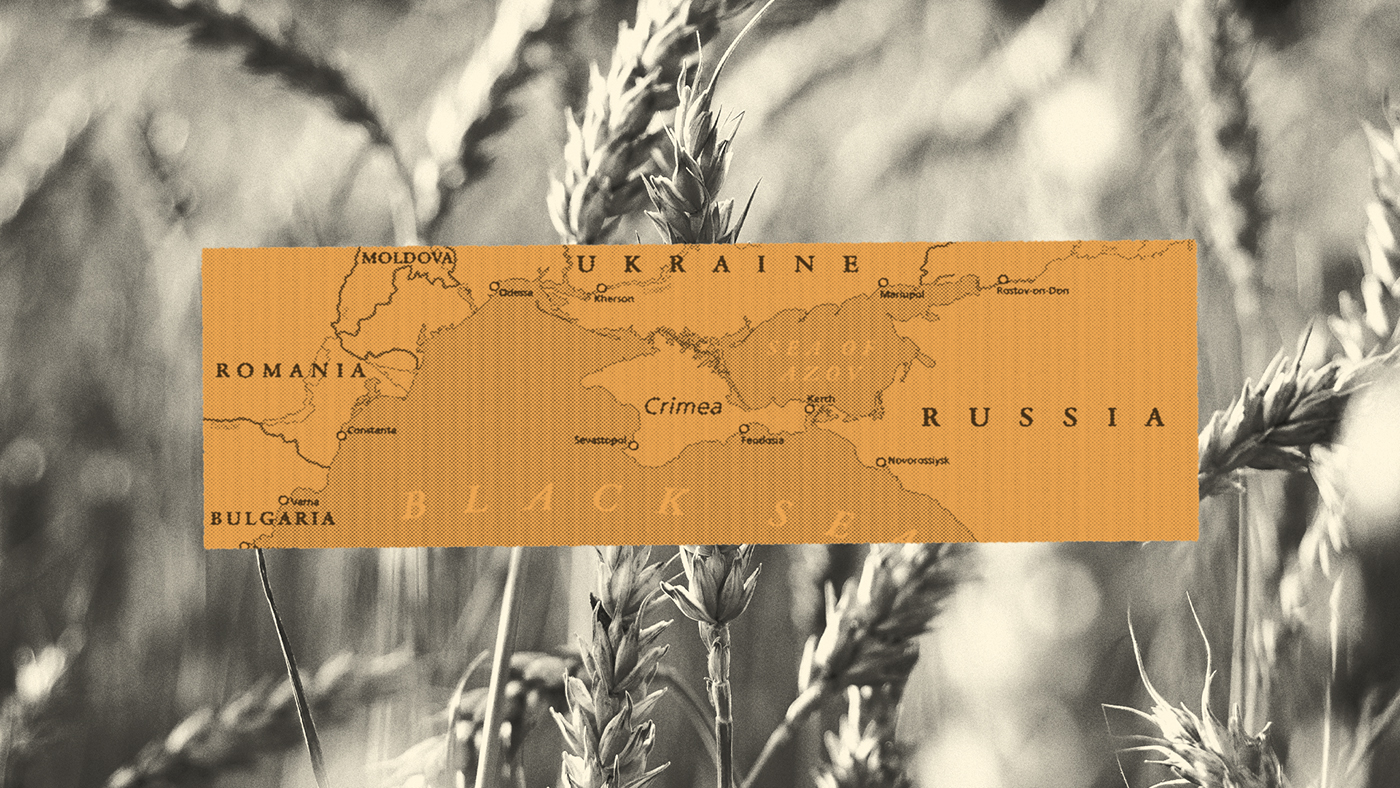 Can the Ukraine-Russia Black Sea grain deal be rescued?
Can the Ukraine-Russia Black Sea grain deal be rescued?Today's Big Question The Kremlin’s termination of agreement has sparked fears among food-insecure countries
-
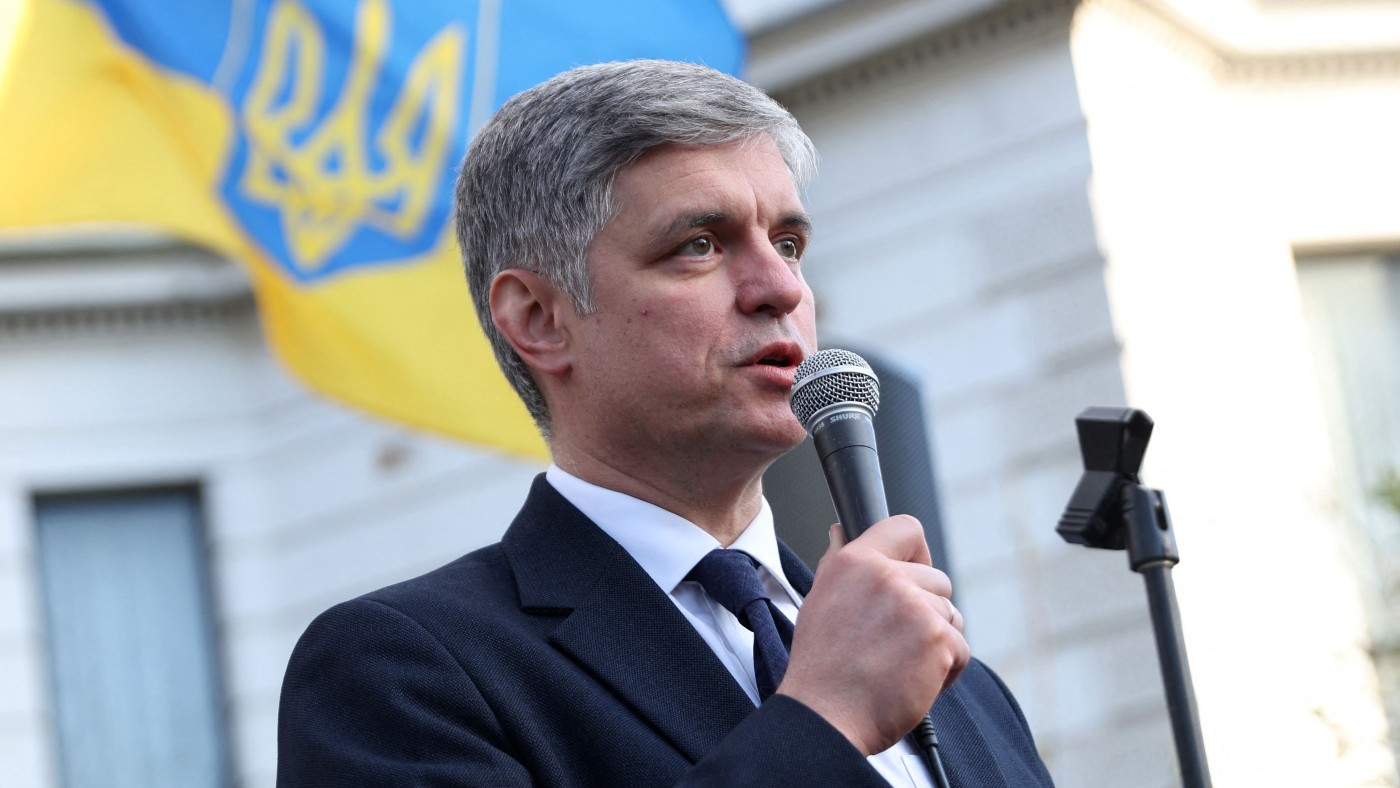 Zelenskyy sacks Ukraine ambassador to UK after sarcasm row
Zelenskyy sacks Ukraine ambassador to UK after sarcasm rowSpeed Read Vadym Prystaiko accused his boss of an ‘unhealthy sarcasm’ in response to British defence secretary Ben Wallace
-
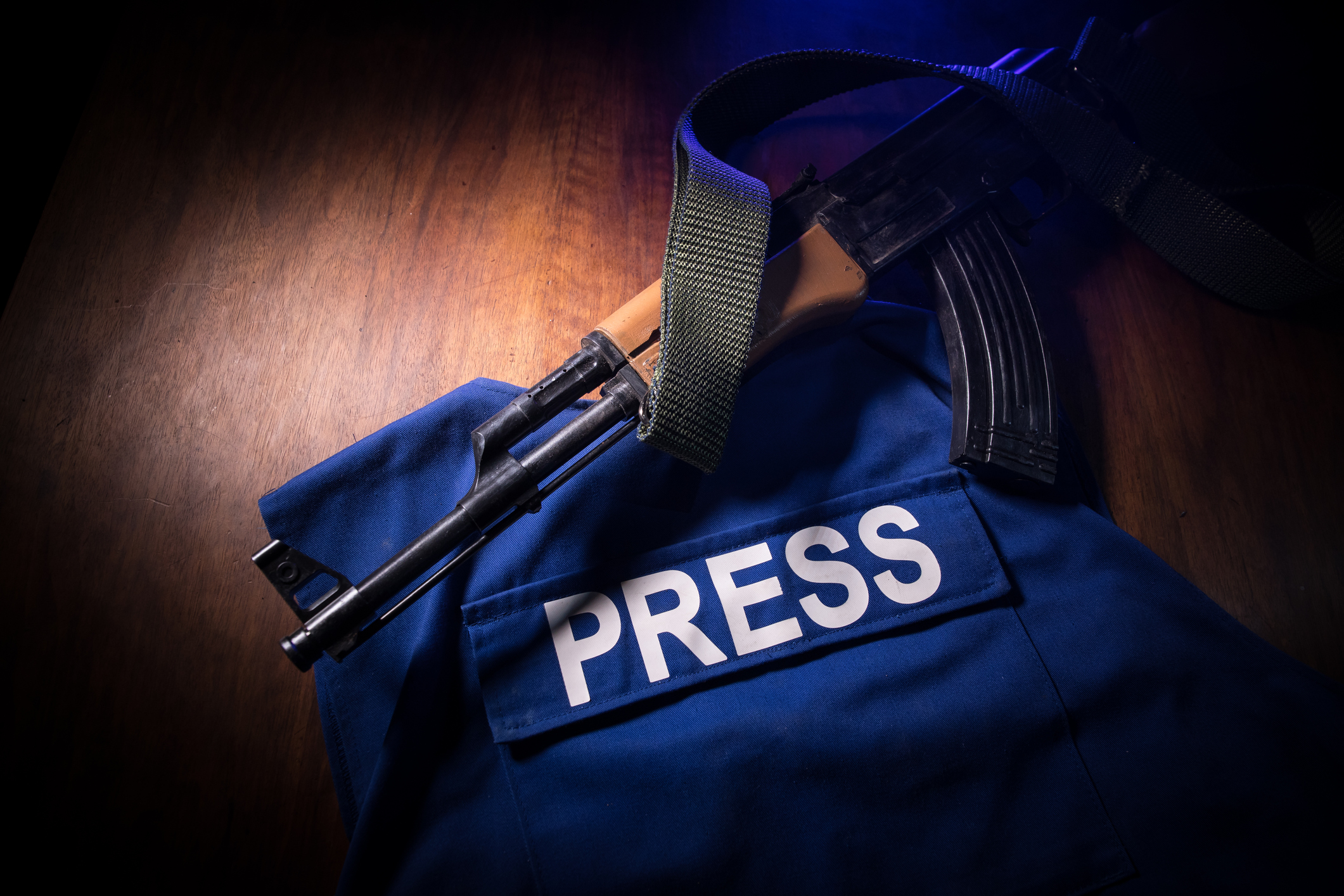 Why journalist deaths continue to rise around the world
Why journalist deaths continue to rise around the worldUnder the Radar Journalist deaths rose sharply in 2022 and don't appear to be slowing down this year
-
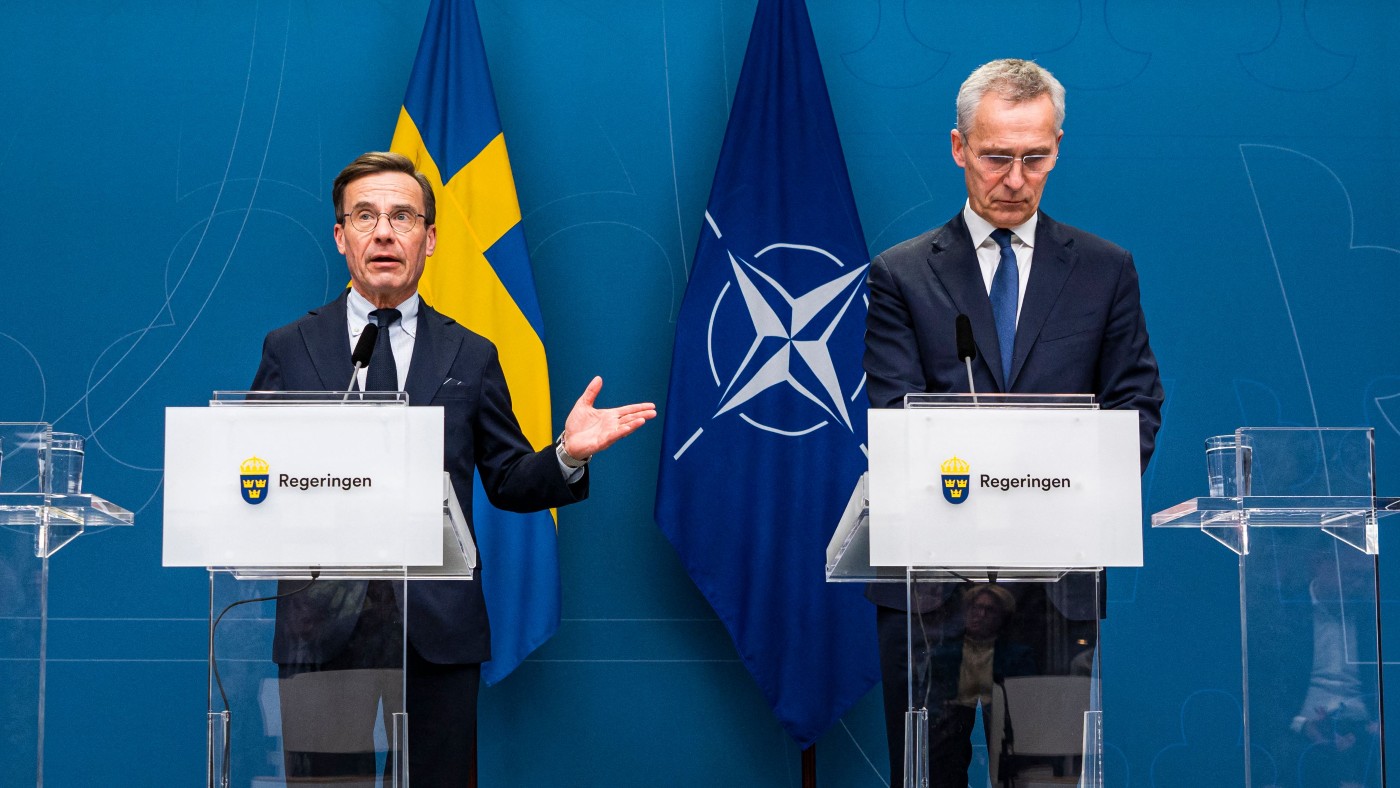 Non-aligned no longer: Sweden embraces Nato
Non-aligned no longer: Sweden embraces Natofeature While Swedes believe it will make them safer Turkey’s grip over the alliance worries some
-
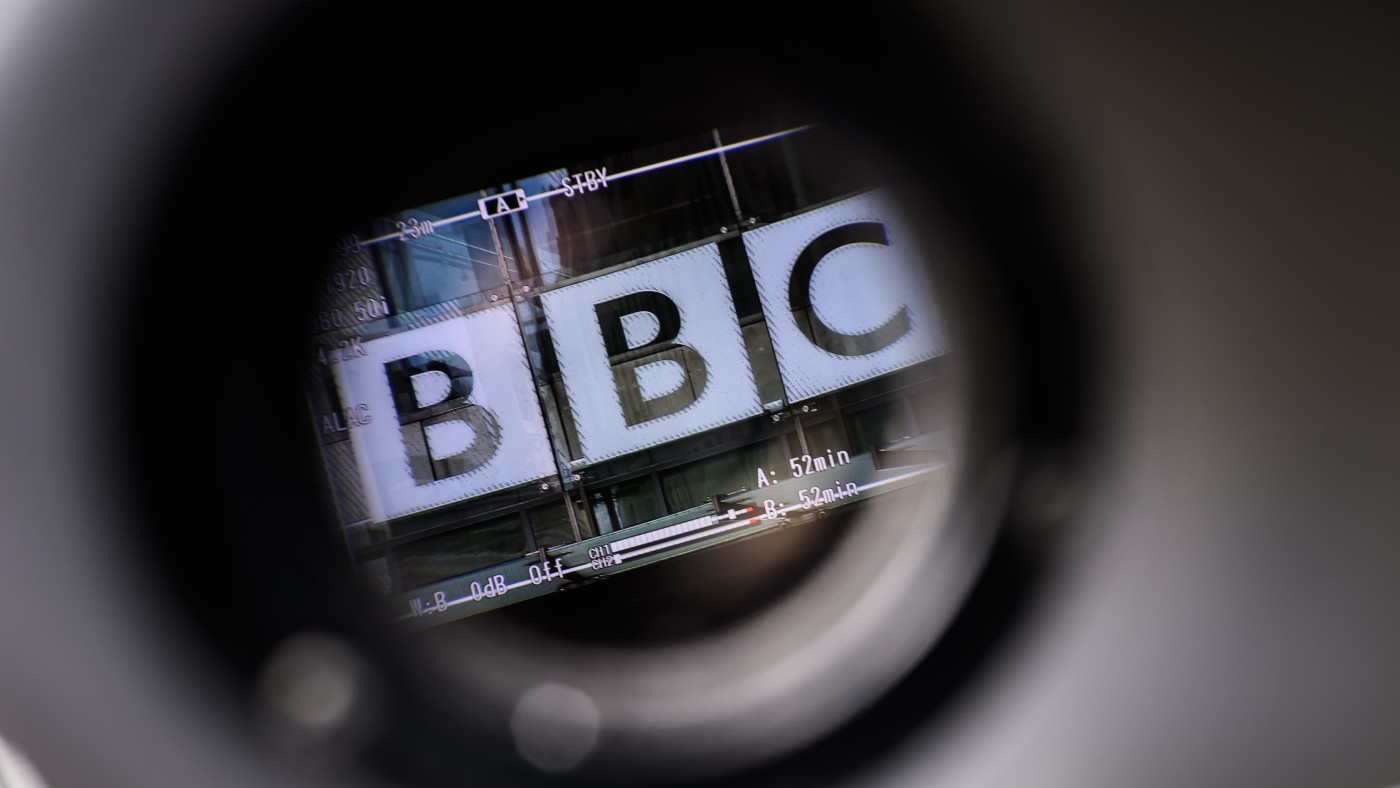 BBC pauses probe into presenter ‘sex scandal’ as police take over
BBC pauses probe into presenter ‘sex scandal’ as police take overSpeed Read Met Police weighing up whether to launch criminal investigation as Rishi Sunak calls claims ‘shocking and concerning’